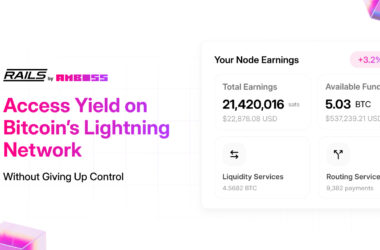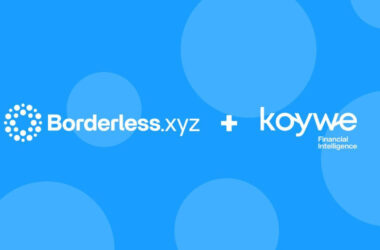
Blockchain technology stands out as one of the most transformative innovations in this rapidly evolving digital age. Originally developed as the infrastructure for Bitcoin, blockchain has transcended its initial application and it is now making substantial inroads into various sectors. One of the most significant areas of impact is financial transactions, where blockchain promises enhanced security, transparency, and efficiency. However, we are now seeing an explosion in blockchain job opportunities, just like we saw an explosion in job opportunities for app development post iPhone and Android explosion.
Table of Contents
The Essence of Blockchain Technology
Blockchain is a decentralized ledger that records transactions across a network of computers. Each transaction is grouped into a block, which is then linked to the previous block, forming a chain. This architecture ensures that once a block is added to the chain, it cannot be altered without altering all subsequent blocks, providing an immutable record of transactions. This immutability is one of the key features that make blockchain a revolutionary technology.
Impact on Financial Transactions
1. Enhanced Security
Blockchain’s decentralized and encrypted structure reduces vulnerability to hacking and fraud by distributing data across multiple nodes, ensuring transaction records are immutable and secure.
2. Increased Transparency
Blockchain provides a transparent ledger accessible to authorized parties, building trust and enabling independent verification of transactions, which enhances audit trails and regulatory compliance.
3. Improved Efficiency and Speed
By enabling direct peer-to-peer transactions and automating agreements with smart contracts, blockchain reduces the time and cost of traditional financial processes, making transactions faster and more efficient.
4. Reduced Costs
Blockchain cuts transaction costs by eliminating intermediaries and minimizing fees, increasing profitability and competitiveness for businesses through direct peer-to-peer networks.
Job Opportunities in Blockchain Development
The expansion of blockchain technology has given rise to a new and dynamic field: blockchain development. As industries increasingly adopt blockchain solutions, the demand for skilled blockchain developers and fintech jobs has surged, creating numerous job opportunities.
Here’s a look at some of the key roles and career paths in blockchain development:
1. Blockchain Developer
Blockchain developers design, implement, and maintain blockchain solutions. They create decentralized applications (dApps) and smart contracts, ensuring these applications are secure and efficient. Proficiency in programming languages like Solidity (for Ethereum), JavaScript, and Python is essential for this role. As blockchain technology continues to evolve, blockchain developers will play a crucial role in driving innovation and adoption, contributing significantly to fintech jobs. On average, a blockchain developer can expect to earn an annual salary ranging from $100,000 to $150,000, reflecting the high demand and specialized skills required in this field.
2. Blockchain Architect
Blockchain architects design the overall structure of blockchain solutions. They define the network’s architecture, select appropriate technologies, and ensure that the system meets business requirements. This role requires a deep understanding of blockchain principles, consensus mechanisms, and cryptographic algorithms. Blockchain architects are pivotal in creating scalable and secure blockchain systems that can handle large volumes of transactions, making them key players in the fintech jobs market. On average, a blockchain architect can expect to earn an average annual salary around $175,000, reflecting the high demand and specialized skills required in this field.
3. Smart Contract Developer
Smart contract developers specialize in creating self-executing contracts that run on blockchain networks. These contracts automate complex processes, reducing the need for intermediaries and ensuring transparency. Smart contract developers need to be proficient in languages like Solidity and Vyper and must understand the intricacies of blockchain platforms like Ethereum. Their work is critical in enabling decentralized finance (DeFi) applications and other blockchain-based services, further expanding fintech jobs. On average, a smart contract developer can expect to earn an annual salary ranging from $60,000 to $124,000, reflecting the specialized skills and high demand in this field.
4. Blockchain Consultant
Blockchain consultants advise organizations on how to implement and leverage blockchain technology. They analyze business processes, identify areas where blockchain can add value, and develop strategies for adoption. This role requires a combination of technical knowledge and business acumen, as consultants must understand both the capabilities of blockchain and the specific needs of their clients. Blockchain consultants are instrumental in guiding companies through the complex landscape of blockchain adoption, a growing area within fintech jobs. On average, a blockchain consultant can expect to earn an annual salary ranging from $73,000 to $120,000, reflecting the expertise and strategic insight required in this role.
The Future of Blockchain Technology and Job Market
The future of blockchain technology looks promising, with continuous advancements and increasing adoption across various sectors. In finance, blockchain is poised to revolutionize everything from cross-border payments to supply chain finance. As more organizations recognize the benefits of blockchain, the demand for skilled professionals in blockchain development and fintech jobs will continue to grow. This expanding job market offers exciting opportunities for those with the right skills and expertise in fintech jobs.
In conclusion, blockchain technology is reshaping the landscape of financial transactions, offering enhanced security, transparency, efficiency, and reduced costs. Simultaneously, it is creating a wealth of job opportunities in blockchain development and fintech jobs. As this technology continues to evolve, its impact on both the financial sector and the job market will undoubtedly be profound, making it an exciting field to watch and be a part of. The rise in fintech jobs, driven by the growth of blockchain, represents a significant shift in the job market, providing numerous opportunities for tech professionals to advance their careers.














Recent Comments